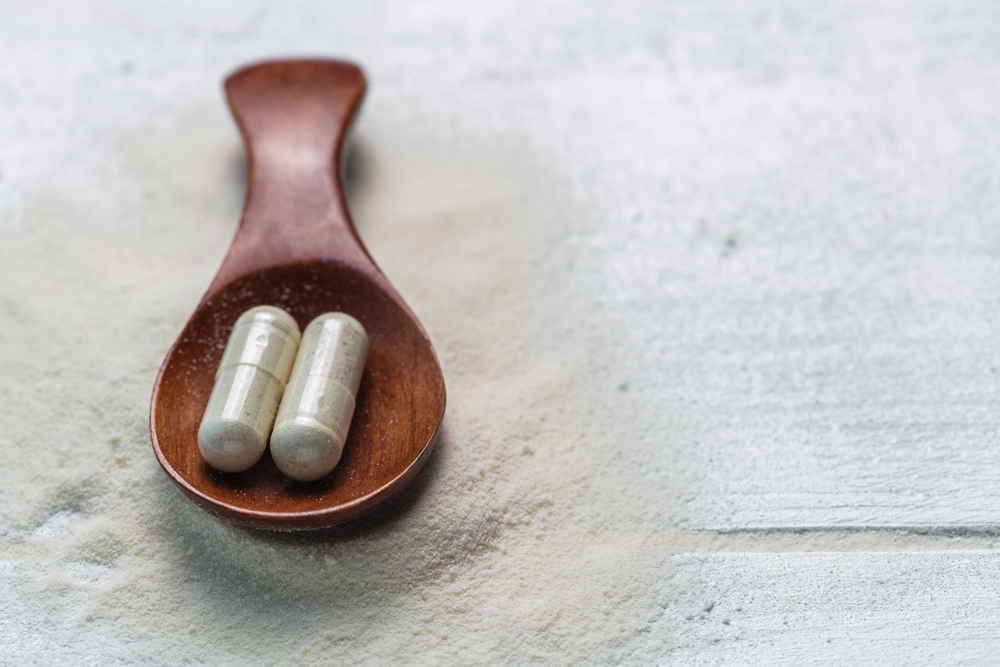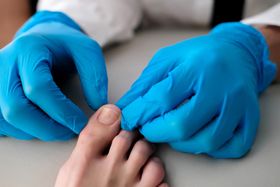The Risks of Collagen Deficiency and How to Prevent Them
Published May 19, 2022.

Collagen is a vital component of a strong and healthy body. Also known as the “golden protein,” collagen makes up approximately one-third of all protein in the body.
This protein provides structure to the body. From skin, hair, and nails to gut lining, eyes, muscles, tendons, and ligaments, collagen is found everywhere in our body.
Consequently, a collagen and protein deficiency can cause a range of problems, from brittle nails and wrinkled skin to joint pains, osteoarthritis, digestive disorders, and even liver problems.
What Causes Collagen Deficiency?
Collagen is a protein that your body makes naturally. However, certain factors can reduce collagen production, resulting in its deficiency. The main causes are:
- Age With age, collagen production decreases naturally. The decline starts from the age of 25 and from there the production decreases by 1% per year. With menopause, the drop is huge—at about 30%.
- Low-fat diet The low-fat dietary advice of the last few decades is responsible for the increasing number of collagen deficiencies, as low-fat diets provide far smaller amounts of collagen.
- Sun The ultraviolet rays of the sun (UVA and UVB) damage the skin and collagen fiber and are responsible for about 80% of skin aging.
- High sugar intake The intake of too much sugar damages your body from within. It also causes collagen degradation. Excess sugar in combination with a specific protein causes glycation. During this process, harmful substances are released called AGEs. They then bind to collagen fibers and destroy them.
- Cigarettes Smoking is another major contributing factor to collagen deficiency. The nicotine that you inhale constricts blood vessels and reduces the supply of oxygen and important nutrients to the skin. Smoking also produces AGEs that cause further damage. What's more, your body requires vitamin C to produce collagen. Smoking, however, breaks down this vitamin, and so it directly hampers collagen formation.
- Environmental pollution Pollution, smoke, toxic gasses, deodorants, perfumes, and construction material, among others, cause havoc to our collagen layer.
Symptoms of Collagen Deficiency
- Lackluster skin Collagen gives your skin its elasticity, structure, and strength. It helps skin cells to repair themselves and helps the skin stay hydrated. Subsequently, if there is less collagen, the skin starts to lose its elasticity and sags, and you form wrinkles and look aged.
- Brittle nails Collagen is one of the major proteins in your nail. It supports the nail infrastructure and boosts its growth—ultimately, it is what keeps your nail strong. A lack of collagen, therefore, makes your nails brittle, and they break easily.
- Dull hair Collagen is the building block of the hair, and it surrounds each strand. It is the protein that gives your hair its structure and quality. Where there is a collagen deficiency, the hair begins to lose its sheen and thickness, and the health of the scalp deteriorates. This results in dull hair that damages and breaks easily.
- Joint and muscle stiffness The cartilage that acts as the bone's covering deteriorates with less collagen. It becomes stiffer, and the joints lose range of motion.
- Weak muscles With collagen deficiency, your muscle mass also decreases. This causes muscle weakness and the resulting pain.
- Joint pain and osteoarthritis When there is not enough collagen, the cartilage wears down, causing inflammation and joint pain.
- Brittle bones and fractures Collagen is what forms and strengthens your bones. When you are deficient in it, your bones become weak and prone to fracture.
- Digestion problems In instances of a collagen deficiency, the intestinal lining thins outs, and you are likely to experience digestion problems such as cramps and stomach aches.
- Low blood pressure The walls of your blood vessels are made of collagen. These are the pipes that ensure the smooth flow of blood across your body. When there is less collagen, these vessels become weak. It then gets difficult for your body to maintain the same blood flow, which eventually results in low blood pressure. Other symptoms are chest pain, headaches, dizziness, and fatigue.
How to Boost Collagen Levels
There are many ways to boost your collagen levels, including:
Eating Foods Rich in Essential Nutrients
These will naturally boost collagen synthesis in the body. Nutrient-rich foods include citrus fruits, kale, Brussels sprouts, broccoli, berries, organ meats, chicken skin, pork skin, oysters, beef, fish, poultry, crab, etc. They contain high amounts of vitamin C, zinc, copper, and high-quality protein that boosts collagen production.
Taking Collagen Supplements
Supplements can be in the form of powder or pills. Collagen powder can be taken by mixing it into smoothies, shakes, coffee, tea, or even baked goods. Collagen powder smoothies are a tasty way to boost your collagen levels, and marine collagen powder is highly recommended.
Using Red Light Therapy
Red light therapy has become very popular these days as a non-invasive method of boosting collagen. It is a low-level laser light therapy (LLLT) that helps increase collagen growth naturally and doesn’t have any side effects.
Protecting Your Skin From UV Rays
This is especially important for preserving the collagen layers. A good sunscreen to protect your skin and sunglasses for your eyes is highly recommended. Other than these, the intake of different types of antioxidants can help protect and rejuvenate the skin. Foods and drinks rich in these antioxidants are green tea, blueberries, yerba mate, cinnamon, oregano, thyme, essential oils, and coffee extract.
Best Supplements to Stimulate Collagen Production
1. Nutritional Supplements
The following nutrients can be taken as supplements and are the most effective in promoting collagen production:
- Hyaluronic acid
- Vitamin C
- Retinol
- Copper
- Protein, especially those rich in lysine and proline
- Zinc
2. Collagen Powders and Pills
These are excellent nutritional supplements used for collagen production. There are even Keto collagen supplements available for those following a Keto diet. Regardless of your diet, we suggest trying Approved Science® Collagen Pills, which contain marine collagen derived from wild Alaskan pollock. Its bioavailability is 1.5 times better than any other collagen, and it comes with vitamin C, BioPerine®, and sodium ions.







